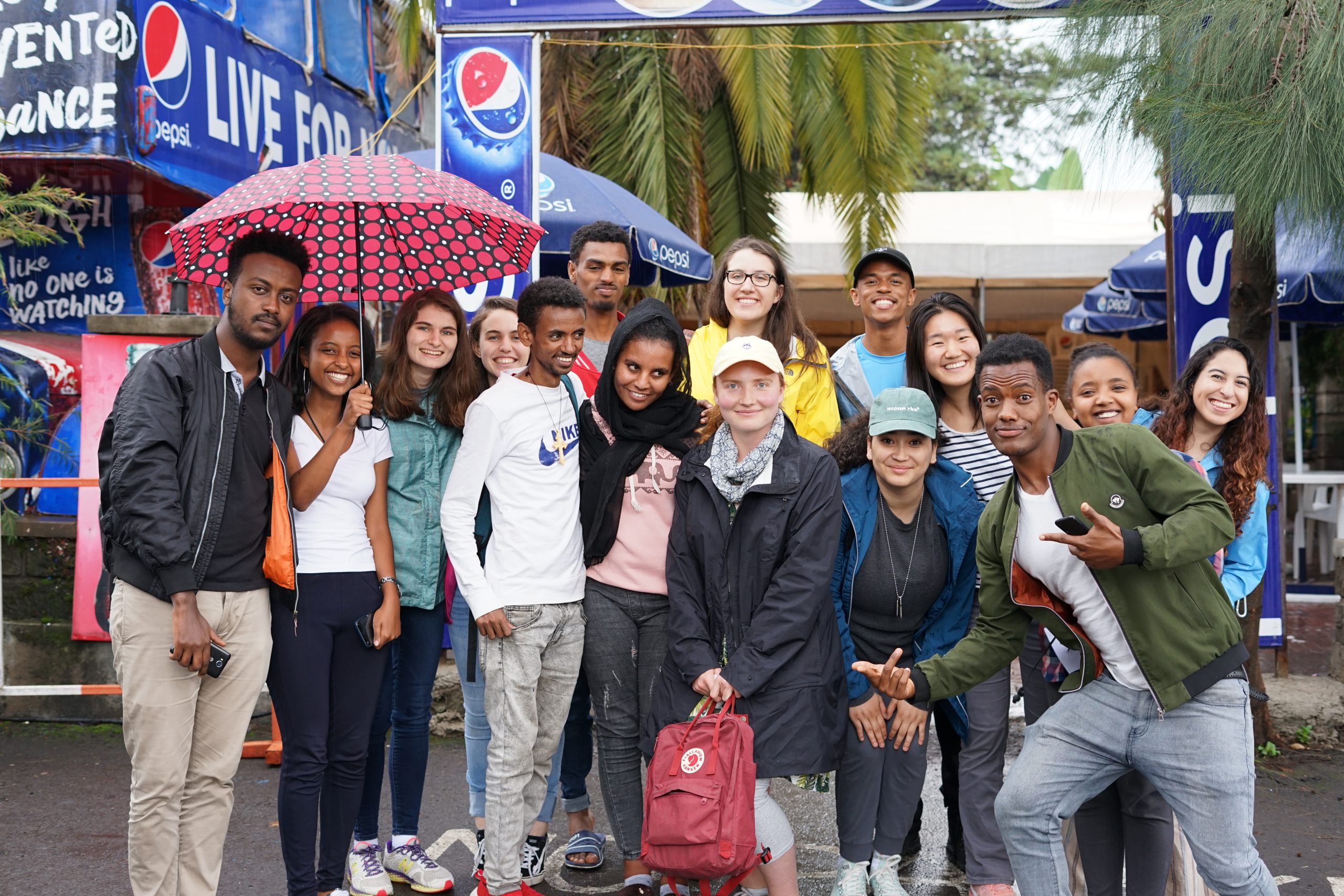As the calendar year of 2019 has come to a close, several of the undergraduate students who went on the Ethiopia field trip reflected on their journey.
“The trip to Ethiopia was very impactful on my current mindset. Experiencing the culture firsthand was an irreplaceable experience that I will always remember”, says Leonardo Abreu.
Irreplaceable it certainly was.

The UConn students arrived during the time when Ethiopian high school students were taking their exams. This meant that the internet was disabled, for the entire country. This included restrictions to social media platforms include WhatsApp, and SMS text messaging was disabled. Xinyu Lin recalled, “my experiences in Ethiopia made me reflect on Western society’s hyper-connectivity and find appreciation in being fully present in daily life.”
With that, the students enjoyed a full agenda of museum and city tours led by Dr. Atsbeha. One excursion included going to the oldest university in Ethiopia, located in Addis Ababa and being generously hosted by Dr. Abeje Kassegne. He introduced the UConn travelers to his sociology students, right before a torrential downpour where nearby construction was halted and the bajajs pulled over because the rain was too heavy to see.
“Meeting university students that were around our age was interesting as we listened to their perspective on Ethiopia and the US,” Leo states. “They are so knowledgeable of their city, their history and their university” Amanda added after all the students went to the university museum.
In addition to getting to know Addis Ababa and Bahir Dar, the students went to the field where they were paired with PIRE researchers and shadowed their daily research routine. “It was really enlightening, and very necessary, to see the context and community that the research I’m conducting is based in,” says Xinyu.
“A major concern with international engineering projects (specifically, projects where the U.S. is involving itself in the Global South) is that they often do not involve true community involvement in or desire for the project. This work also frequently suffers from a lack of genuine understanding of the culture in which the project is being built. Such shortcomings lead to miscommunication at best, and long-lasting detrimental effects on the community at worst; in this case, only those who are “helping” are the ones being fulfilled by the experience. The UConn PIRE project bucks this trend,” says Sophie McDonald.

“Through the project, I am lucky to have worked with such an interdisciplinary team that values the importance of the sociological, human component of engineering work and is committed to mitigating the mentioned issues. I’m also so very, very lucky to have travelled with a group of kind, thoughtful, and overall incredible fellow undergrads,” Sophie concluded.
The trip was shortened by two weeks due to the politics in Bahir Dar. For many students, this was a detail of the trip rather than the highlight.
The hills and valleys of the trip would not have been the same without the help of Dr. Phoebe Godfrey who attended with the students. She helped engineering and science students practice the sociological perspective in a tangible way throughout the trip. In the same way, the sociology graduate students already present in Ethiopia offered invaluable experience and guidance to the undergraduates, such mentorship was a unique experience afforded by this research.